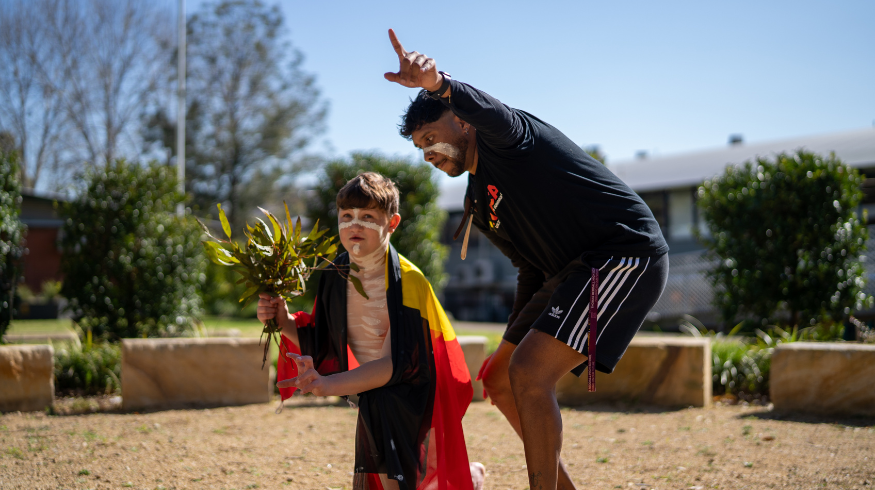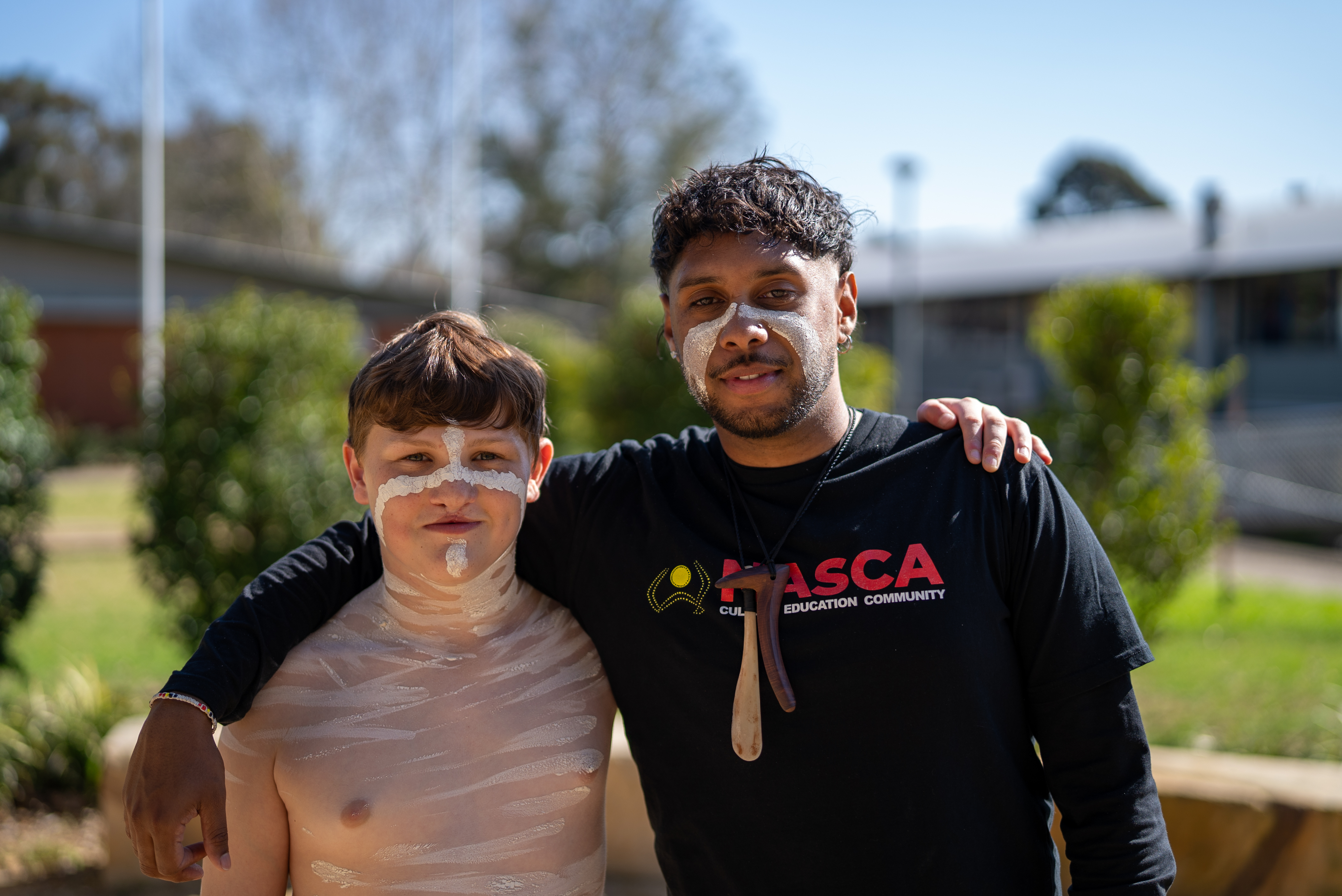The power of connecting to Culture

Jayden felt alone and disconnected. But that changed when he joined NASCA. By connecting to his Culture, he was empowered to become the proud Dharawal man he is today who knows his place in the world.
“I felt really lonely. No one to talk to, no one understood what I was going through,” says Jayden.
“Before high school, the only Aboriginal people I knew were my immediate family. When I used to tell people I was Aboriginal they wouldn’t believe me because I was white. But then I joined NASCA and met Derek, and the other NASCA workers and really connected with them.”
Dharawal man Jayden – currently in year 10 at Thomas Reddall High School – has been part of the NASCA program for three-and-a-half years, and in that time the shift in his confidence has been significant.
“Jayden was the first kid I supported when I came to Thomas Reddall,” says NASCA Program Lead Derek Nannup.
“He was really shy at first, I needed to build that trust with him before he opened up, but now is he a leader in our program. His pride and confidence, especially with his Culture have shifted dramatically.”
NASCA has been running an in-school program at Thomas Reddall for the past four years. The focus of this is to connect Aboriginal and Torres Strait Islander students to their Culture to improve their school attendance, performance, and attainment rates.
For Jayden, the opportunity to connect to his Culture has been transformative.

“NASCA has given me the chance to be myself, to be with my Mob, and be how I’m supposed to be. They’ve taught me language and traditional song and dance, how to cook Aboriginal food, and taught me cultural practices. I then go and teach my brother and little cousins what I’ve learned which feels great. I used to want to be a professional boxer but now I think I want to be an Aboriginal teacher,” says Jayden.
Providing Indigenous young people with an opportunity to connect to Culture is critical to improving their emotional and social well-being, which is especially important during high school years when many can face racism, bullying, and discrimination.
“Aboriginal and Torres Strait Islander people only make up three percent of the population, there’s not a lot of us around but we just connect in a way that’s really unique. That sense of connection and belonging is really important, particularly at this time of life. High school can be tough and kids are developing and maturing and turning into the people they will be in the future, so feeling supported and connected helps that journey. It’s really important to have that safe space,” says Derek.
“I get that understanding from NASCA about who I am and where I come from. That’s important to me. I feel proud, better, stronger. NASCA has made me feel proud about my Culture and my Mob and now I’ll do anything to keep my Culture alive. NASCA has given me family.”
